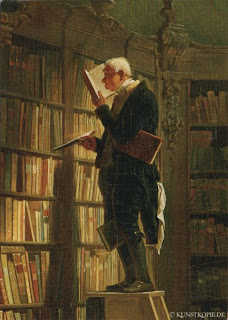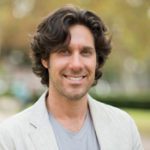Even political scientists have families. And during the holidays they are occasionally forced to talk to them. Not their spouses and children, who have already given up on them, but extended families, like aunts, uncles, etc. This puts political scientists in the awkward position of trying to explain just what on earth it is they actually do.
Non-political scientists, in their desperate effort to make small talk with someone they see just every few years, make the assumption that political scientists know something about politics. They will ask, “What do you think Obama’s chances are?” Or, “do you think Herman Cain really groped that woman?” At this point, they will be inevitably disappointed by the response, which will be straight from the New York Times, where all political scientists get all their information about real politics –that, or the New Yorker.
Non-political scientists think that political science is current events, high school civics for college students. So if a political scientist tells someone at the gym that he studies international relations, the response is always, “Boy that is interesting these days. There is a lot to keep busy with.” Until recently the political scientist could simply respond, “Yes, we are very close to knowing where Bin Laden is” and the non-political scientist would go away comforted that political scientists were on the case. Now he must simply nod, or risk crushing the non-political scientist by explaining what his new book is actually on – early 20th century Portugese colonialism.
People get the wrong idea, however, when political scientists appear on the network news in their natural environment, a room shelved with what looks like two dozen complete series of the Encyclopedia Britannica. Political scientists feel very comfortable amongst reference books. Here they are asked to lend gravitas to already established and self-evident facts. Did you know that Newt Gingrich’s recent decline in polls suggests that he might have difficulty securing the Republican nomination? That the situation in Iraq will become more uncertain with the departure of U.S. troops? Some guy in a library told me so! This gives the impression that political scientists follow or care about politics, when in fact they just want to be on TV.
Political scientists are smart enough to know that politics does not matter. They are the keepers of the secrets, the underlying generalizable forces that truly explain the events of our time. Will Burma democratize? Well what is its GDP? Will Iran develop the nuclear weapon? Well what is the size of its selectorate? This makes them terrible at small talk. So if there is a political scientist in your family, stick to sports this holiday season. How about that Tim Tebow?
Rathbun is a professor of International Relations at USC. Brian Rathbun received his Ph.D. in Political Science from the University of California, Berkeley in 2002 and has taught at USC since 2008. He has written four solo-authored books, on humanitarian intervention, multilateral institution building, diplomacy and rationality. His articles have appeared or are forthcoming in International Organization, International Security, World Politics, International Studies Quartlery, the Journal of Politics, Security Studies, the European Journal of International Relations, International Theory, and the Journal of Conflict Resolution among others. He is the recipient of the 2009 USC Parents Association Teaching and Mentoring Award. In 2019 he will be recognized as a Distinguished Scholar by the Diplomatic Studies Section of the International Studies Association.



0 Comments